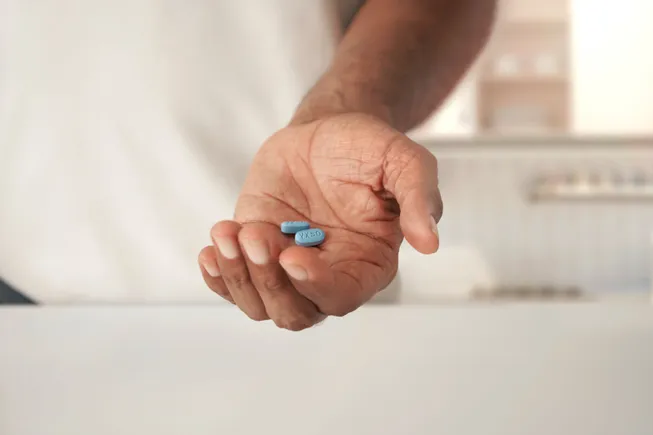Vertex’s non-opioid pain drug gets FDA approval in milestone for company and research


The movement to steer pain treatment away from opioids notched a major victory Thursday, as the Food and Drug Administration approved a new, highly anticipated drug from Vertex Pharmaceuticals.
The culmination of decades of work, Vertex’s Journavx is now cleared to treat the short-lived “acute” pain usually felt after an accident or a surgery. Vertex hopes to eventually get the drug approved for chronic pain as well, though clinical trials testing it in that setting have produced mixed results.
Acute pain is often treated with a combination of acetaminophen, anti-inflammatory agents like ibuprofen and, if necessary, opioids, which pose an addiction risk because they act directly on the brain and stimulate pleasure centers. Despite the dangers, insurance companies, pharmacy managers and drugmakers like Purdue Pharma for years pushed for the use of opioids in pursuit of immense profits. The resulting overdose crisis has killed hundreds of thousands of people in the U.S. alone.
Vertex is positioning its medicine as a valuable alternative to opioid-based therapies. A first-of-its-kind pill, Journavx works by blocking a certain kind of pain-signaling protein found almost exclusively in nerve cells outside the brain and spine. It’s thought to not have addictive properties and, so far, human testing has shown it to be remarkably safe.
Some experts caution it’s too early to know for sure whether Journavx is truly non-addictive. Still, that possibility is central to Vertex’s pitch.
“I’m not going to use the word silver bullet, but [Journavx] is really, really compelling,” said Stuart Arbuckle, Vertex’s chief operating officer. “That’s how we are going to be presenting it to physicians and patients: Here’s a new treatment option, which we think … is the best of both worlds.”
Arbuckle, who is overseeing the drug’s launch, said Vertex has been planning for this approval for “a number of years.” The company has amassed 150 staff to sell Journavx.
Cost and patient access are concerns with most new medicines, but they can be especially prominent in the pain market due to the multitude of cheap generic options. According to Arbuckle, doctors and payers have questioned his team about those two issues more than anything else.
Vertex points to the enormous personal and financial toll opioids take on society. The company cites a report from the Society of Actuaries, which estimates that, between 2015 and 2018, the economic burden of the opioid crisis in the U.S. amounted to $631 billion, with a third of that total coming from “excess health care spending.”
The Congressional Joint Economic Committee has also tried to calculate the cost of the opioid epidemic. Looking just at 2020, the committee found it was nearly $1.5 trillion, up more than one-third from three years prior.
“Virtually everybody” understands the value of a drug like Journavx, Arbuckle said. “Does that mean we’re going to have tough negotiations on price? Of course. Do we think we’ll have to negotiate access? Of course. Do we have to go through formulary procedures? Of course. But it’s not like we’re getting a stiff arm from people.”
Across two large studies, Journavx proved significantly better than a placebo at reducing acute pain in patients who had just undergone either a “tummy tuck” or bunionectomy. However, the drug did not prove more effective than a combination of Tylenol and a commonly prescribed opioid.
On Wall Street, the average forecast has Journavx sales surpassing several billion dollars by the early 2030s. Other, more bullish estimates put the drug’s revenue potential far higher. Those guesses assume the drug will eventually get approved in the chronic setting, though. While data from a chronic lower back pain study left investors wanting more, Journavx’s performance in a mid-stage trial focused on the nerve pain caused by diabetes impressed both doctors and analysts.
Shares of Vertex closed Thursday trading at $438 apiece before news of Journax’s approval was announced. The Boston-based biotechnology company, which is known for its cystic fibrosis medicines, is currently valued at more than $110 billion.
This post has been syndicated from a third-party source. View the original article here.




